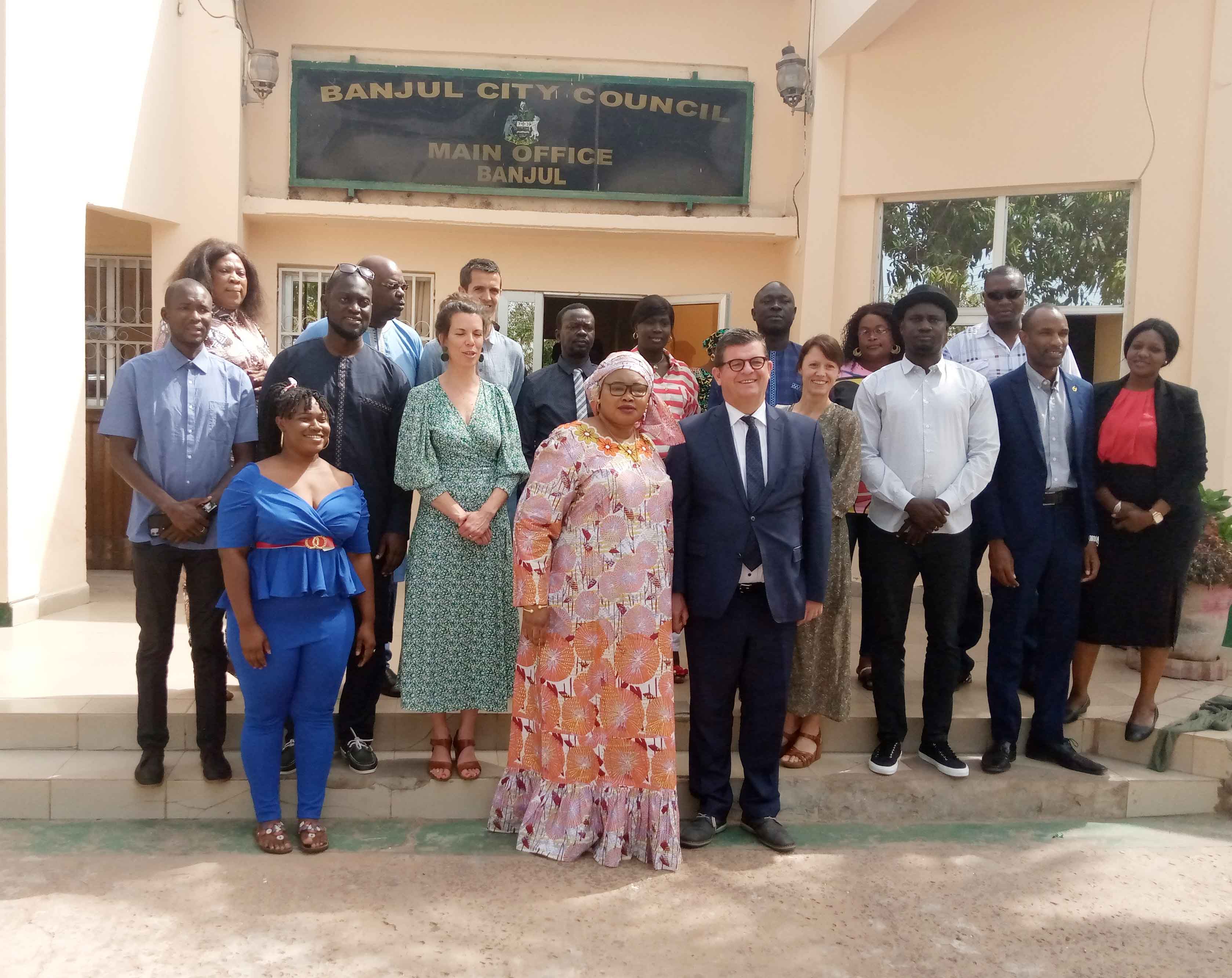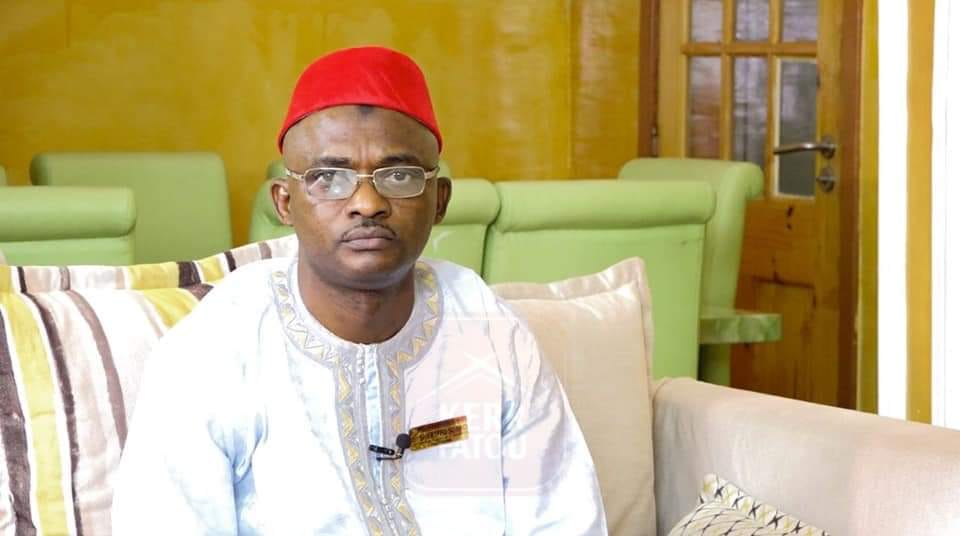President Adama Barrow has described the collaboration established by Q-Group and The Gambia Transport Services Company (GTSC) as highly commendable, and he advocates the promotion of such mutual collaboration and cooperation.
“By the National Transport Policy, The Gambia Government will create incentives to facilitate and broaden private sector participation in public transportation activities,” the Gambian leader said at the launching of the urban transport initiative in Banjul on Tuesday.
He also assured that the Government will continue to support GTSC to operate buses in all regions of the country while encouraging private partners to invest more in infrastructure development to support the sector.
“We will consider allocating routes on the local and secondary roads to GTSC, based on agreed terms of engagement beneficial to all partners.
Meanwhile, the relevant authorities will arrange to review the legislative frameworks to enable the Government to play the triple role of facilitator, regulator, and enforcer, while the private sector takes on operational responsibilities within the sector,” the Gambian leader pointed out.
He added: “The supply credit arrangement between GTSC and the Q-Group (Espace Motors), through the provision of urban transport services, will immensely ease transportation for low-income households. Besides this, it will make transport operations more viable, as transport providers are likely to increase hours of operation, service frequency, and destinations.
All these go with environmental benefits, such as reducing emissions and reducing the road congestion currently experienced on the road links in the urban area.”
He noted that the project will create employment for at least seventy Gambians, noting that with the good safety record of GTSC over the years, we hope the Initiative will lower the high rate of road accidents to the barest minimum.
President Barrow described Tuesday’s launching as another milestone in the history of vehicular transportation in the country.
“Thirty-three of the buses are exclusively for urban transport services, whilst the remaining five are for operational support to the Urban Transport Initiative Project.
This development cannot come at a better time, considering the recent significant improvements on our road infrastructure network and the growing traffic congestion in the Greater Banjul Area,” he noted.
He added: “Despite the Government’s achievements in this sector, the need to complement road infrastructure development with proper road transport operations is obvious. History teaches that, for any country to improve its transport services, public transport services, particularly in urban settings, must be efficient and responsibly managed.
This Urban Transport Initiative illustrates the National Development Plan’s recognition of the important role public transport services contribute towards the national economy.”
According to him, acting on this recognition, his Government will steadfastly seek to improve the transport sector through all relevant stakeholders, especially the operatives within it.
He further disclosed that recently, the government has established the Department of Transport at the Ministry of Transport, Works, and Infrastructure to assume oversight responsibility of policy and regulation of road transport and other related sub-sectors.
“The Greater Banjul Area hosts the bulk of our population. No wonder meeting the mobility needs of the people within the Area, amid its rapid rate of urbanization and population growth is one of the major challenges in the National Transport Policy. As such, any scheme geared towards improving urban transport services to ease movement without compounding traffic congestion is most welcome and laudable.
Cognisant of this huge challenge, we are intensifying efforts during the implementation period of the National Transport Policy (2018-2026), my government will continue to address the concerns linked to the increased demand for transport through efficiency improvements, including regular and effective public transport service provision and traffic management measures. Easing traffic on the main road links will take center stage in this respect,” President Barrow highlighted.
He noted that “with a broader City-State concept in mind, we expect that this project will extend services to the rural area in our drive to comprehensively address the transport challenges we face throughout the length and breadth of the country.”
“Consequently, we must note that efficiency in the transport sector cannot come about without the active participation of the private sector.
In this regard, we renew the invitation to the private sector operators to participate in operating an effective and efficient transport system in the country. Given the fact that the road transport system is liberalized, I challenge the private sector to play a more active and diverse role in the sector,” President Barrow stated.
He commended GTSC for their tireless efforts to provide reliable public transport service in The Gambia, saying that the Urban Transport Services Initiative symbolizes a new era of collaboration for public transport service provision. We pray that it succeeds.
He also appreciates and commends the Q-Group for agreeing to supply buses to GTSC, through a supply credit agreement, for the implementation of this important project.




